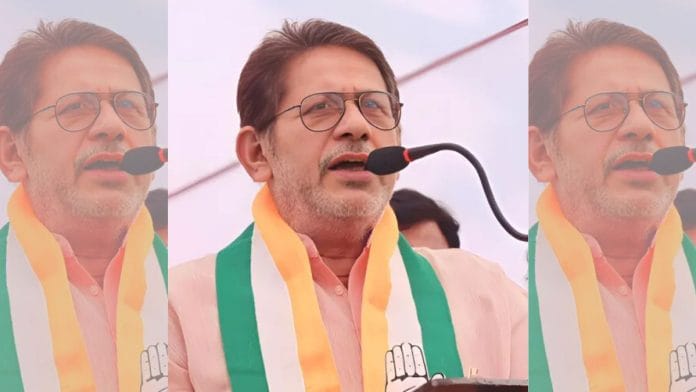Thank you dear subscribers, we are overwhelmed with your response.
Your Turn is a unique section from ThePrint featuring points of view from its subscribers. If you are a subscriber, have a point of view, please send it to us. If not, do subscribe here: https://theprint.in/subscribe/
With the passing of Shyam Sundar, his influence did not end. His son, Rajendra Bharti, followed in his father’s footsteps, continuing to serve the public and becoming a well-known figure in his own right. Born on May 30, 1958, in Datia, Rajendra Bharti, pursued law and eventually embarked on a political career, much like his father.
Rajendra Bharti’s public life closely mirrors his father’s trajectory
He served as the President of the District Cooperative Land Development Bank and later as the Vice President of the State Cooperative Land Development Bank. In 1997, he travelled to Paris, England, Austria, the Netherlands, Italy, and Germany for research purposes. He has also been a member of the Madhya Pradesh Vidhan Sabha. His biography reflects his active involvement in various social and cultural activities, such as organizing competitions and promoting literature and music, much like his father.
Throughout his political career, Rajendra Bharti faced several challenges. He was arrested multiple times, notably in 1978 and between 1990 and 1992, and served time in jail for his activism. From 1991 to 1996, he was the President of the District Congress Committee (DCC), strengthening his leadership role within the Congress Party in Madhya Pradesh.
Rajendra Bharti’s career has been defined by his steadfast commitment to the principles his father upheld. He has held several key positions within the Congress Party and earned respect both within the party and among his constituents for his dedication to public service and his commitment to continuing his father’s work.
Rajendra Bharti: The Man Who Defeated the Home Minister of Madhya Pradesh in Datia
The 2023 Madhya Pradesh Legislative Assembly election has been a closely watched political event, marked by several high-profile contests. Among the most remarkable outcomes was the victory of Rajendra Bharti, who achieved the extraordinary feat of defeating Dr. Narottam Mishra, the incumbent Home Minister of Madhya Pradesh, in the Datia constituency. This outcome sent shockwaves throughout the state’s political landscape and became a major debating point in national politics.
The Rise of Rajendra Bharti
Rajendra Bharti is no stranger to the political arena, but his victory over a heavyweight like Narottam Mishra has brought him into the national spotlight. A member of the Congress Party, Bharti comes from a humble background and has been deeply involved in social work and grassroots politics in the Datia region for many years. His political journey has been characterized by a focus on issues affecting the common people, including farmers’ rights, unemployment, and the development of rural infrastructure.
Bharti’s campaign centred on the idea of bringing change to the region, which he argued had been neglected under Mishra’s leadership. He capitalized on local discontent, particularly among farmers and young people, and presented himself as a leader who would prioritize their needs over political rhetoric.
The Impact of Bharti’s Victory
Rajendra Bharti’s victory over Narottam Mishra is not just a personal triumph but also a significant political development for Madhya Pradesh. It signals a shift in the political dynamics of the state, particularly in regions that were traditionally considered strongholds of the Bharatiya Janata Party (BJP). Bharti’s win is likely to boost the Congress Party’s confidence in the state and could influence future elections.
For the people of Datia, Bharti’s victory represents the hope of a new beginning. Many voters see him as a leader who will bring their concerns to the forefront and work toward the region’s development. The election result also underscores the importance of local issues and grassroots-level campaigning in Indian politics, where even the most powerful leaders can be unseated if they fail to address the needs of their constituents.
Conclusion
Rajendra Bharti’s victory in Datia is a prime example of how electoral politics in India can produce unexpected outcomes. His defeat of a political heavyweight like Narottam Mishra emphasizes the importance of staying connected with the people and addressing their concerns. As Bharti takes on his new role as the MLA of Datia, all eyes will be on him to see how he delivers on the promises that led to his victory. His journey from a grassroots leader to a “giant killer” serves as a reminder of the strength of democracy and the unpredictable nature of Indian politics.
These pieces are being published as they have been received – they have not been edited/fact-checked by ThePrint


